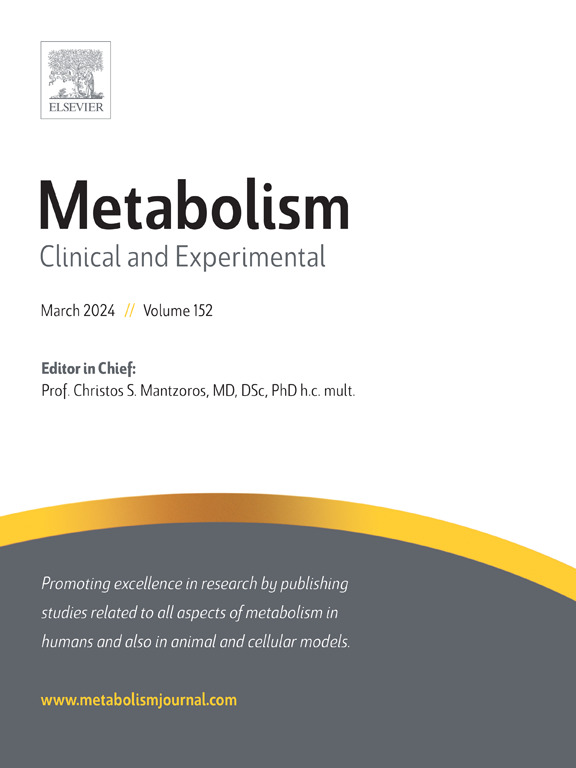Metabolites-mediated posttranslational modifications in cardiac metabolic remodeling: Implications for disease pathology and therapeutic potential
IF 10.8
1区 医学
Q1 ENDOCRINOLOGY & METABOLISM
引用次数: 0
Abstract
The nonenergy – producing functions of metabolism are attracting increasing attention, as metabolic changes are involved in discrete pathways modulating enzyme activity and gene expression. Substantial evidence suggests that myocardial metabolic remodeling occurring during diabetic cardiomyopathy, heart failure, and cardiac pathological stress (e.g., myocardial ischemia, pressure overload) contributes to the progression of pathology. Within the rewired metabolic network, metabolic intermediates and end-products can directly alter protein function and/or regulate epigenetic modifications by providing acyl groups for posttranslational modifications, thereby affecting the overall cardiac stress response and providing a direct link between cellular metabolism and cardiac pathology. This review provides a comprehensive overview of the functional diversity and mechanistic roles of several types of metabolite-mediated histone and nonhistone acylation, namely O-GlcNAcylation, lactylation, crotonylation, β-hydroxybutyrylation, and succinylation, as well as fatty acid-mediated modifications, in regulating physiological processes and contributing to the progression of heart disease. Furthermore, it explores the potential of these modifications as therapeutic targets for disease intervention.

求助全文
约1分钟内获得全文
求助全文
来源期刊

Metabolism: clinical and experimental
医学-内分泌学与代谢
CiteScore
18.90
自引率
3.10%
发文量
310
审稿时长
16 days
期刊介绍:
Metabolism upholds research excellence by disseminating high-quality original research, reviews, editorials, and commentaries covering all facets of human metabolism.
Consideration for publication in Metabolism extends to studies in humans, animal, and cellular models, with a particular emphasis on work demonstrating strong translational potential.
The journal addresses a range of topics, including:
- Energy Expenditure and Obesity
- Metabolic Syndrome, Prediabetes, and Diabetes
- Nutrition, Exercise, and the Environment
- Genetics and Genomics, Proteomics, and Metabolomics
- Carbohydrate, Lipid, and Protein Metabolism
- Endocrinology and Hypertension
- Mineral and Bone Metabolism
- Cardiovascular Diseases and Malignancies
- Inflammation in metabolism and immunometabolism
 求助内容:
求助内容: 应助结果提醒方式:
应助结果提醒方式:


